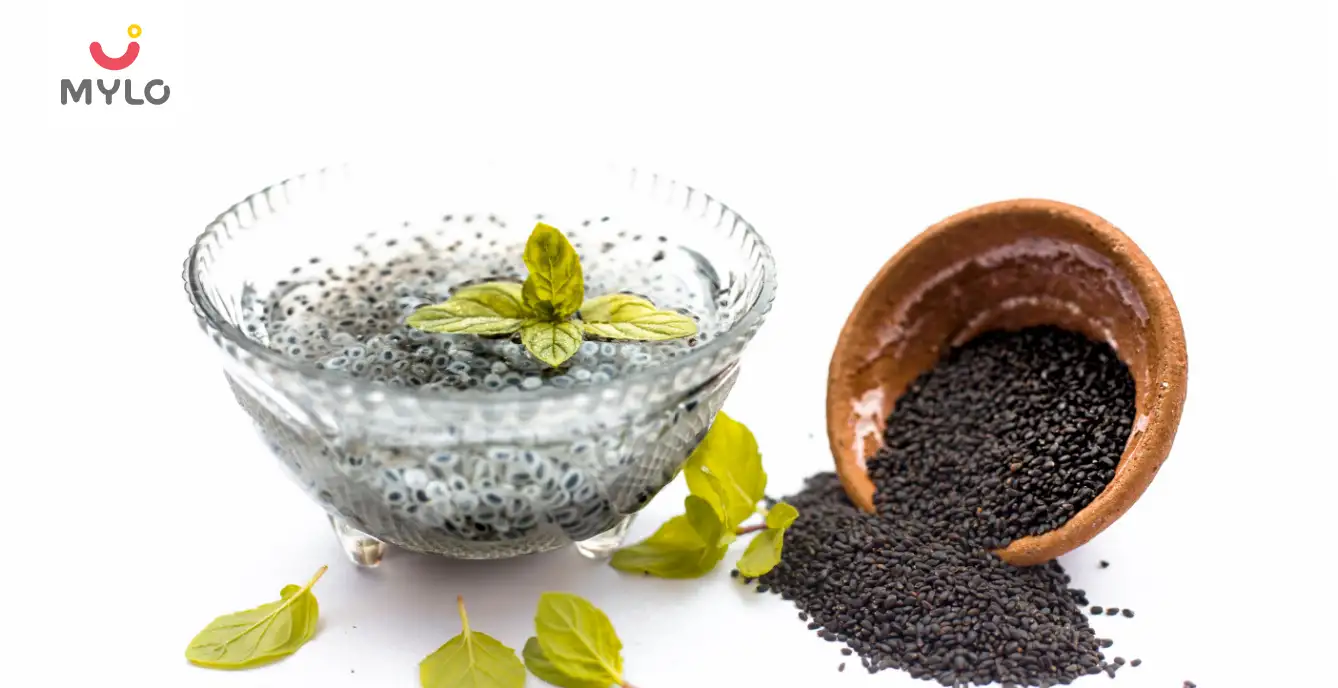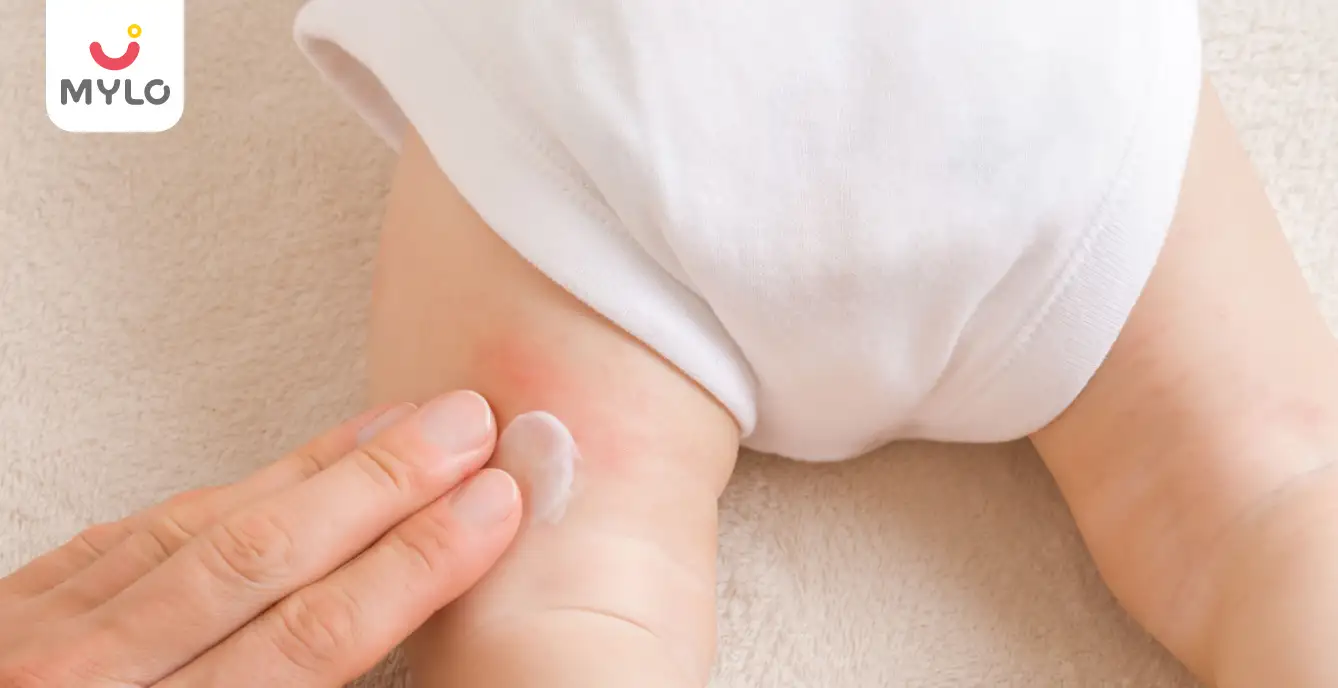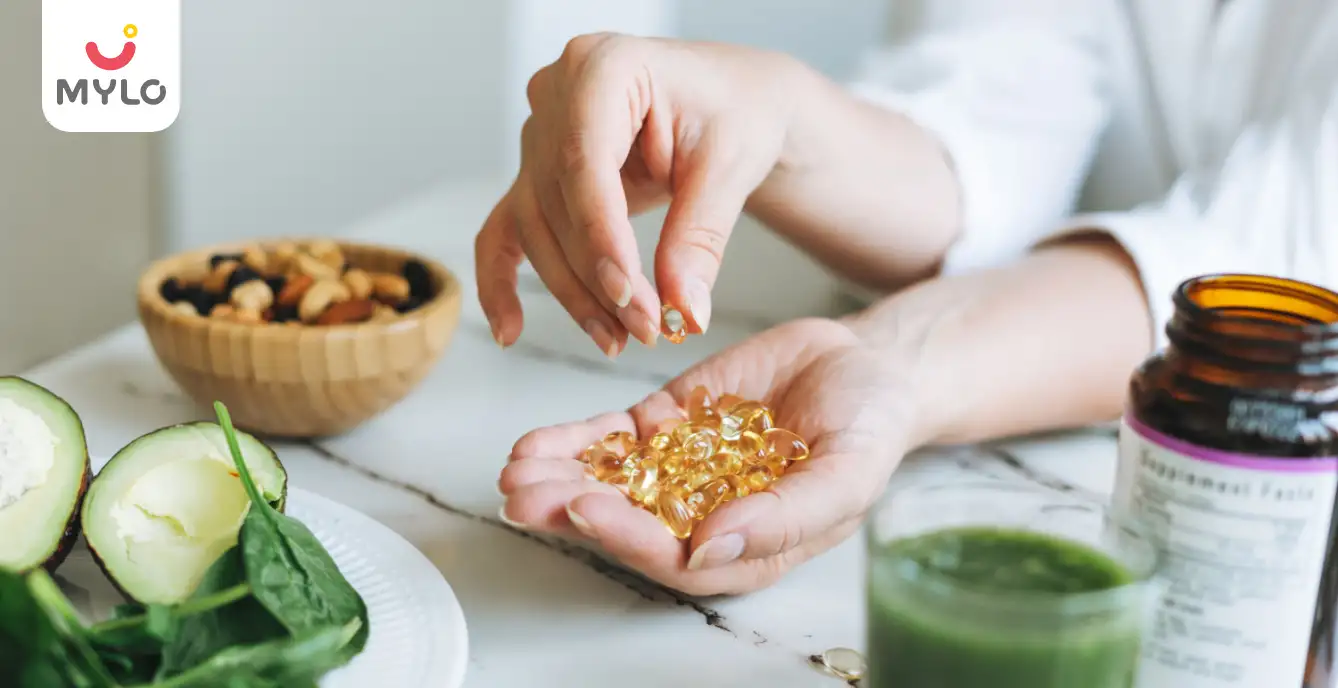Home

Diet & Nutrition

Can We Eat Curd During Periods: Understanding the Dairy Dilemma
In this Article

Diet & Nutrition
Can We Eat Curd During Periods: Understanding the Dairy Dilemma
Updated on 13 November 2023
When it comes to dietary restrictions during menstruation, there are numerous misconceptions and myths that have been passed down through generations. One such myth revolves around the consumption of curd during periods. Naturally, a lot of menstruating women find themselves asking the question, can we eat curd during periods.
In this article, we will delve deep into the topic, debunking common myths and shedding light on the truth about eating curd in periods.
Myths About Eating Curd During Periods & Their Truth
Let us debunk some popular myths surrounding curd and periods:
Myth 1: Curd Should Be Avoided During Periods
There is no scientific evidence to suggest that consuming curd during periods is harmful. In fact, curd is a good source of calcium and probiotics, which can help with bone health and digestive comfort. It can be a healthy addition to your diet during menstruation.
Myth 2: Curd Can Cause Excessive Bleeding
Curd consumption does not lead to excessive menstrual bleeding. Menstrual flow is primarily regulated by hormonal factors, and what you eat is unlikely to have a significant impact on the flow. If you have concerns about heavy bleeding, it's best to consult a healthcare professional.
Myth 3: Curd Makes Period Cramps Worse
Curd is not known to exacerbate period cramps. In fact, the calcium in curd can have a calming effect on muscle contractions and may help alleviate cramps for some individuals. If you experience severe cramps, it's a good idea to consult a doctor for appropriate pain management strategies.
Myth 4: Curd Can Lead to Vaginal Infections
Curd, when consumed as part of a balanced diet, is unlikely to cause vaginal infections. In fact, probiotics found in curd can promote a healthy balance of vaginal flora and reduce the risk of infections. However, it's important to maintain good personal hygiene to prevent any potential issues.
Myth 5: Curd Should Be Avoided Due to Its Cooling Nature
Traditional beliefs suggest that curd has a cooling effect on the body, which might be undesirable during periods. However, this cooling effect is not a cause for concern. Your body temperature remains relatively stable, and eating curd is generally safe. If you prefer warmer foods during your period, it's a matter of personal comfort and preference rather than a strict dietary rule.
You may also like: Can We Eat Papaya During Periods: Your Guide to Benefits and Risks
Can We Eat Curd During Periods?
The question of whether it is safe to consume curd while menstruating has long been a subject of debate. According to popular belief, curd should be avoided during menstruation as it is believed to cause bloating and stomach discomfort.
However, there is no scientific evidence to support this claim. In fact, curd is a rich source of calcium and probiotics, which can be beneficial during this time of the month.
Can Curd Delay Periods?
One of the common myths associated with consuming curd during menstrual cycle is that it can delay the menstrual cycle. This misconception stems from the belief that the cooling properties of curd can affect the hormonal balance in the body.
However, there is no scientific basis to support this claim. Menstruation is a natural process regulated by the hormones in the body, and consuming curd is unlikely to have any significant impact on the timing of periods.
You may also like: Coffee in Periods: Debunking the Myths and Understanding the Facts
What are the Benefits of Consuming Curd During Periods?
Contrary to popular belief, consuming yogurt during periods can offer several benefits. Here are five reasons why you should consider including curd in your diet during this time:
1. Rich in Calcium
Curd is an excellent source of calcium, which is essential for maintaining strong bones and teeth. During menstruation, women often experience a decrease in calcium levels, and consuming curd can help replenish these levels.
2. Probiotics for Gut Health
Curd contains probiotics, which are beneficial bacteria that promote a healthy gut. These probiotics can help alleviate digestive issues such as bloating and constipation, which are common during periods.
3. Relief from Cramps
Curd contains natural enzymes that can help reduce menstrual cramps. The soothing properties of curd can provide relief from the discomfort associated with menstrual pain.
4. Boosts Immunity
The probiotics present in curd can also strengthen the immune system. During menstruation, when the body is more susceptible to infections, consuming curd can help fortify the immune system and ward off illnesses.
5. Mood Enhancement
Curd contains tryptophan, an amino acid that helps increase the production of serotonin, also known as the "feel-good" hormone. Consuming curd during periods can help improve mood and alleviate symptoms of premenstrual syndrome (PMS).
Precautions to Follow While Eating Curd in Periods
While eating curd during periods can be beneficial, it is important to follow certain precautions to ensure maximum benefits. Here are five precautions to keep in mind:
1. Choose Fresh Curd
Opt for fresh, homemade curd or curd from a trusted source. Avoid consuming curd that has been stored for too long, as it may have lost its nutritional value and can potentially cause digestive issues.
2. Moderation is Key
As with any food, moderation is key. While curd is generally safe to consume during periods, excessive consumption can lead to bloating and discomfort. Stick to recommended serving sizes to avoid any adverse effects.
3. Avoid Flavored Curd
Flavored curd often contains added sugars and artificial additives, which can be detrimental to your health. Opt for plain, unsweetened curd to reap the maximum benefits.
4. Listen to Your Body
Every individual is different, and what works for one person may not work for another. Pay attention to how your body reacts to curd during periods. If you experience any discomfort or adverse effects, it is best to consult a healthcare professional.
5. Maintain a Balanced Diet
While curd can be a healthy addition to your diet during periods, it should not replace a balanced meal. Ensure that you are consuming a variety of nutritious foods to meet your body's needs during menstruation.
The Bottomline
In answer to the initial question- can we eat curd during periods, the belief that curd should be avoided during periods is nothing more than a myth. In fact, consuming curd during menstruation can offer several benefits, including providing calcium, promoting gut health, relieving cramps, boosting immunity, and enhancing mood. However, it is important to follow certain precautions, such as choosing fresh curd, consuming in moderation, avoiding flavored curd, listening to your body, and maintaining a balanced diet.
Reference
Najafi N, Khalkhali H, Moghaddam Tabrizi F, Zarrin R. (2018). Major dietary patterns in relation to menstrual pain: a nested case control study. BMC Womens Health.



Written by
Anandita Sharma
Drawing on more than a decade of expertise in administration, Anandita Sharma currently serves as a content operations e
Read MoreGet baby's diet chart, and growth tips

Related Articles
Related Questions
Hello frnds..still no pain...doctor said head fix nhi hua hai..bt vagina me pain hai aur back pain bhi... anyone having same issues??

Kon kon c chije aisi hai jo pregnancy mei gas acidity jalan karti hain... Koi btayega plz bcz mujhe aksar khane ke baad hi samagh aata hai ki is chij se gas acidity jalan ho gyi hai. Please share your knowledge

I am 13 week pregnancy. Anyone having Storione-xt tablet. It better to have morning or night ???

Hlo to be moms....i hv a query...in my 9.5 wk i feel body joint pain like in ankle, knee, wrist, shoulder, toes....pain intensity is high...i cnt sleep....what should i do pls help....cn i cosult my doc.

Influenza and boostrix injection kisiko laga hai kya 8 month pregnancy me and q lagta hai ye plz reply me

RECENTLY PUBLISHED ARTICLES
our most recent articles

Diet & Nutrition
Sabja Seeds During Pregnancy: Benefits & Side Effects

Rashes
Newborn Diaper Rash: Causes, Treatment and Prevention Tips

Diapering
New Born Baby Diapers: Understanding the Quantity and Sizing Needs of Your Little One

PCOS & PCOD
The Ultimate Guide to Supplementing with Omega 3 for PCOS

Exercise & Fitness
The Ultimate Guide to Safe and Effective Exercise in Periods

PCOS & PCOD
PCOS Hair Growth: Causes, Symptoms, and Effective Treatment Options
- Endometrial Hyperplasia: The Ultimate Guide to Understanding Its Causes and Treatment
- Lights, Camera, Baby Bump: Movies to Watch During Pregnancy
- Squat During Pregnancy Benefits & Precautions
- The Ultimate Guide to Thyroid Treatment in Ayurveda
- Ayurvedic Treatment for Acne: Holistic Healing for Clear Skin
- Gokshuradi Guggulu: Ayurveda's Solution for UTI and Kidney Support
- The Surprising Benefits of Dark Chocolate for Periods
- How to Reduce Air Pollution in Your Daily Life
- Normal Prolactin Levels to Get Pregnant: What You Need to Know
- What Causes Low HCG Levels in Early Pregnancy & How to Increase It?
- Top 10 Babymoon Destinations in India for Expecting Parents
- Understanding the Reasons & Solutions for a Baby Not Eating Food
- The Ultimate Guide on How to Delay Periods Naturally
- গর্ভাবস্থায় আলুবোখরা: উপকারিতা ও ঝুঁকি | Prunes During Pregnancy: Benefits & Risks in Bengali


AWARDS AND RECOGNITION

Mylo wins Forbes D2C Disruptor award

Mylo wins The Economic Times Promising Brands 2022
AS SEEN IN
















- Mylo Care: Effective and science-backed personal care and wellness solutions for a joyful you.
- Mylo Baby: Science-backed, gentle and effective personal care & hygiene range for your little one.
- Mylo Community: Trusted and empathetic community of 10mn+ parents and experts.
Product Categories
baby carrier | baby soap | baby wipes | stretch marks cream | baby cream | baby shampoo | baby massage oil | baby hair oil | stretch marks oil | baby body wash | baby powder | baby lotion | diaper rash cream | newborn diapers | teether | baby kajal | baby diapers | cloth diapers |




